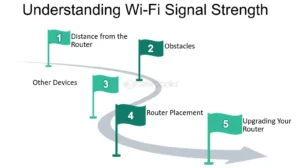Owning property with someone else can sometimes lead to disputes, especially when it comes to how to use or manage that property. One of the most important concepts to understand as a co-owner is your right to a partition.
This legal term refers to your right to divide and distribute property among co-owners. If you’re in a situation where disagreements arise, knowing how the partition process works can help you navigate the complexities of property ownership.
What is Partition?
A partition occurs when co-owners of a property wish to divide their interests in that property. This can take place either through a physical division of the property, if applicable, or by selling it and distributing the profits.
An important aspect to remember is that partition allows every co-owner to have their fair share without forcing them to remain in a partnership that they no longer want.
Why Consider Partition?
The reasons for seeking a partition may vary. Some common scenarios include: – Disagreements between co-owners about how to use the property – One party wanting to sell while the other does not – Changes in personal circumstances, such as divorce or death, prompting a need to reassess ownership.
Understanding why partition is sought helps illustrate why it’s a critical right for property co-owners. It provides a mechanism to resolve disputes and move forward.
The Partition Process
When pursuing a partition, it may not be as simple as just asking the other co-owner to agree. The process often involves several steps:
Trying to Reach an Agreement
Before going to court, it’s wise for co-owners to attempt to reach an agreement. This could mean discussing how the property will be used or how it could be sold. If both parties can agree on the terms, they can avoid a drawn-out legal process.
Filing a Partition Action
If an agreement can’t be reached, the co-owner wishing to partition must file a partition action in court. This legal action formally requests the court to divide the property or sell it. The court will then review the case and decide on the best course of action.
Court Decisions
After reviewing the case, the court has the authority to order a partition. This can include deciding how the property should be divided or whether it should be sold. Many people wonder, can siblings force the sale of inherited property? The answer can be yes, especially if one sibling wishes to liquidate their share.
What Happens After a Partition?
Once a partition order has been made, the next steps can vary. If the property is divided physically, co-owners will need to agree on the division.
If the property is being sold, the process includes handling offers, negotiations, and eventually splitting the proceeds. It’s crucial to maintain open communication with co-owners during this phase to ensure a smooth transition.
Navigating Co-Ownership Conflicts
Understanding your right to a partition is essential when co-owning property with someone else. Whether it involves division or a sale, the process offers a necessary route for individuals facing ownership disputes. Always consider seeking legal advice to guide you through this potentially complex process. If issues arise, knowing how to protect your rights gives you the confidence to act appropriately.
For more helpful tips, check out the rest of our site today.











